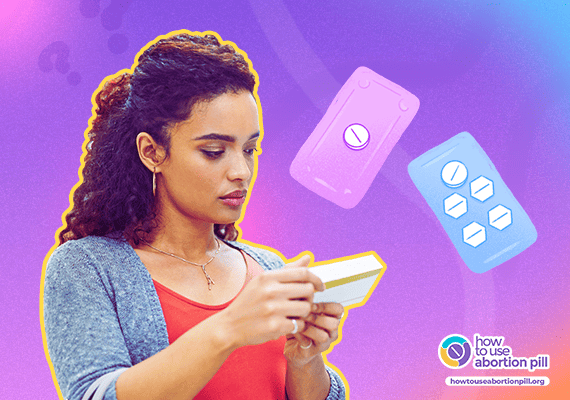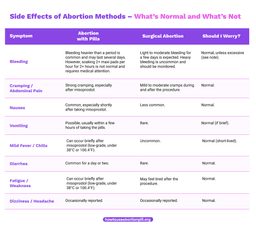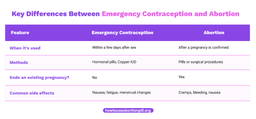After unprotected sex or a failure with your usual birth control, it’s totally normal to feel overwhelmed with questions: Could I be pregnant? Should I take emergency contraception? Do I need to think about abortion?
Before answering those questions, it’s key to understand how pregnancy happens: first, sperm must fertilize an egg. Then, the fertilized egg must travel to the uterus and implant into the uterine wall. Pregnancy officially begins after implantation.
Emergency contraception (EC) works before a pregnancy starts—it helps prevent it. Abortion, on the other hand, is a procedure that ends an existing pregnancy.
Knowing the difference can help you make informed, safe, and pressure-free decisions.
This guide provides clear, evidence-based information without judgment. We explain how each method works, when to use it, what the effects might be, and which option might suit your situation best.
What Is Emergency Contraception?
Emergency contraception includes several methods used to prevent pregnancy after unprotected sex or birth control failure (like a broken condom or missed pills).
These methods do not interrupt an existing pregnancy. That means they are not abortion methods.
How Does It Work?
Emergency contraception works in the earliest stages of the reproductive process to stop a pregnancy from starting. It can do this in three ways:
- Delaying or preventing ovulation (stopping the ovary from releasing an egg)
- Preventing fertilization (keeping sperm from reaching the egg)
- Stopping implantation (preventing the fertilized egg from attaching to the uterus)
If the egg has already implanted in the uterus, emergency contraception will not work.
Types of Emergency Contraception
Emergency Contraceptive Pills (ECPs), also known as morning-after pills
- Levonorgestrel (Plan B, Postinor): effective up to 72 hours after sex
- Ulipristal acetate (ella): works up to 120 hours (5 days) and is more effective for longer delays
Copper Intrauterine Device (IUD)
- The most effective emergency contraceptive method
- Can be inserted up to 5 days after sex
- Offers long-term birth control as well
- Must be inserted by a trained healthcare provider
According to the World Health Organization (WHO), emergency contraception can prevent up to 95% of pregnancies if used correctly and on time.
Common Side Effects
- Nausea
- Dizziness
- Fatigue
- Mild abdominal pain
- Changes in your menstrual cycle
These symptoms are usually mild and go away within a couple of days.
What Is Abortion and How Does It Work?
Abortion is the intentional ending of an ongoing pregnancy. When performed under proper medical conditions, it is a very safe healthcare procedure.
When Does Pregnancy Officially Begin?
Pregnancy begins when a fertilized egg successfully implants in the uterus.
Types of Abortion
Abortion with Pills
- Typically used up to 10–12 weeks of pregnancy.
- This type of abortion with medications can be done using only misoprostol or with a combination of mifepristone and misoprostol. Both methods are safe and effective options for ending an early pregnancy.
- Causes uterine contractions that expel the pregnancy.
- Similar to a miscarriage.
- Can be done at home with guidance.
Surgical Abortion
- Includes procedures like manual vacuum aspiration or dilation and evacuation.
- Performed in clinics or hospitals.
- Quick and highly effective.
According to WHO, abortion is extremely safe when done according to proper guidelines.
Note: If you are soaking more than 2 maxi pads per hour for 2 or more hours, feeling dizzy, or passing large clots for a prolonged period, seek medical care right away. This may indicate hemorrhage or incomplete abortion, especially with pills.
When to Seek Support After an Abortion
In most cases, abortion—whether with pills or a procedure—is very safe. But just like with any health process, it’s important to know when to reach out for help. While complications are rare, you should contact a healthcare provider immediately if you experience:
- Soaking through 2 or more maxi pads per hour for 2 consecutive hours
- Severe abdominal pain that doesn’t improve with pain medication
- Fever over 38°C (100.4°F) lasting more than 24 hours
- Foul-smelling vaginal discharge
- Nausea, vomiting, or diarrhea lasting more than 24 hours
- Dizziness combined with heavy bleeding
These signs can point to complications like infection or excessive bleeding, which are uncommon but treatable with medical care. Most people recover without any issues, but it’s always better to be safe and speak to a healthcare professional if something doesn’t feel right.
What If I’m Not Sure Whether I’m Pregnant?
Not knowing whether you’re pregnant after unprotected sex or if your regular birth control didn’t work is a very common experience. It’s completely normal to feel confused, anxious, or uncertain in these moments.
Pregnancy doesn’t begin instantly after sex. It takes time for an egg to be fertilized and then implanted in the uterus. That’s why signs of pregnancy and the right time to test don’t appear right away.
If you’re wondering what to do next, the first step is finding out whether a pregnancy has actually started. Taking a pregnancy test can give you clarity.
When Can I Take a Pregnancy Test?
Urine Test (home pregnancy test):
- Can be taken from the first day of a missed period
- Detects the hCG hormone about 10–14 days after fertilization
Blood Test (at a clinic):
- More sensitive and accurate
- Can detect pregnancy as early as 6–8 days after ovulation
If you’re unsure, taking a test before making any decisions is ideal.
Which Option Is Right for You?
The best choice depends on many things: how much time has passed since sex, your emotional state, your future plans, your health, and access to safe medical care.
Ask yourself:
- Has it been fewer than 5 days since unprotected sex?
→ Consider emergency contraception. - Are your periods late and you have a positive pregnancy test?
→ Learn about safe abortion options here. - Are you feeling confused, worried, or unsure?
→ Talk to someone you trust, whether it’s a friend or a mental health professional. You can also talk to a counselor from safe2choose.org, who are prepared to listen to you without judgment.
Where to Get Safe, Supportive Help
Having trusted support makes a huge difference. Here are reliable organizations that offer confidential, respectful assistance:
- safe2choose – Compassionate, evidence-based support for those considering abortion
- How to Use Abortion Pill – Educational resource with country-specific abortion pill guides
- MykaTheChatbot – Complete info on contraceptive options
Remember: You’re not alone. Many others are navigating similar situations, and there are professional, respectful resources to help you make informed and empowered choices.
FAQs: Emergency Contraception vs. Abortion
Is emergency contraception the same as an abortion?
No. EC prevents a pregnancy from starting. It doesn’t end an existing pregnancy or affect a fertilized egg already implanted.
How effective is each option?
- EC pills: Up to 95% effective if taken within 24 hours
- Medication abortion: 95%–98% effective during early pregnancy
What if I take the morning-after pill while already pregnant?
It won’t work, and it won’t harm the embryo, but it also won’t stop the pregnancy.
Where can I get professional support?
You can reach out to platforms like safe2choose or HowToUseAbortionPill for safe, confidential help. Ally, the safe abortion chatbot, can assist you with reliable information for your abortion with pills, and the counselors at safe2choose can be your support partners before, during, and after your abortion.


